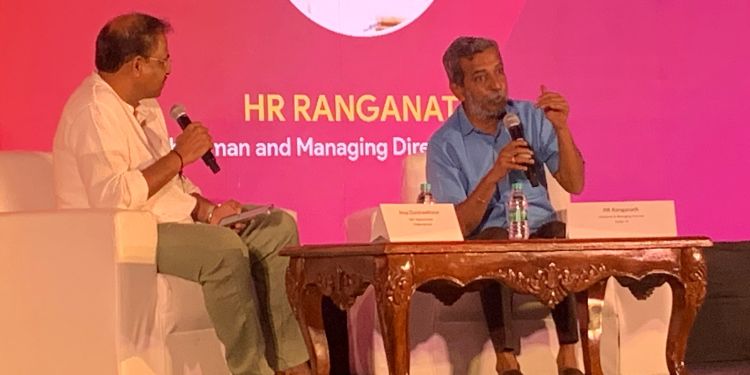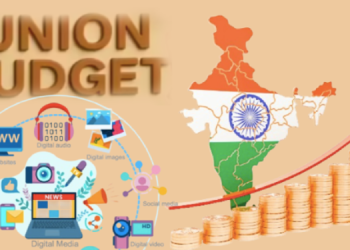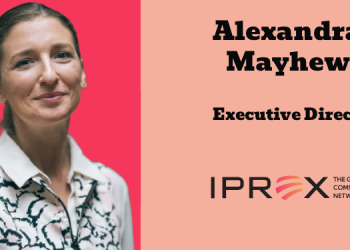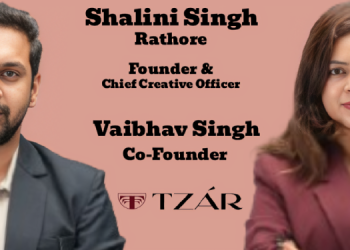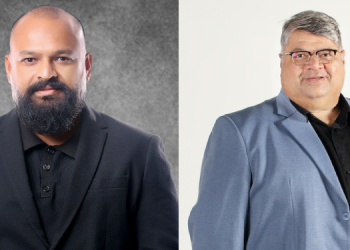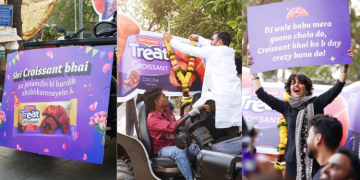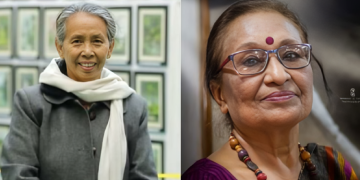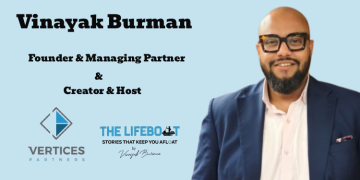The MediaNews4U Print and Television Summit witnessed journalist-turned-Tv channel owner HR Ranganath, Chairman and Managing Director of Kannada news channel Public TV regaling audiences.
Posing questions to him in a fireside chat on the theme ‘A man for all seasons – Timeless journey’. Posing questions to him was Anup Chandrasekharan, COO – Regional, IN10 Media Network.
The conversation explored Ranganath’s journey from being a journalist to building an eminent TV channel in Karnataka, and more.
Speaking on his journey to the world of journalism, Ranganath said, “I never thought I will become a journalist. I opted for science stream as I didn’t get admission for the course which I wanted to pursue. The power of journalism is that it will become a passion in no time. No other profession can have this power or no other profession can engage an individual the way journalism can.”
Ranganath started his journey as a journalist 34 years back, as a reporter in a Tamil newspaper.
“I don’t see journalism as a profession, it is a part of me. I think many of the successful people sitting here, obviously will agree with me, if you don’t have the passion then there is no point. When I set up the channel, I didn’t have any intention of hosting a TV programme. When few of my colleagues showed a kind of attitude, I decided to host a show with zero knowledge in the TV journalism stream. When you are talking from your heart and with clarity of thoughts, I don’t think it is difficult. What happens in journalism is it holds you back from talking when you have subjected yourself to some benefits from the other side.”
When quizzed whether it is possible for a journalist to not be corrupt, Ranganath said, “I proudly say I am (honest). There are certain compromises you will make and they are different from corrupt thoughts and practices. I could thrive in that and stand because I had clarity on what I wanted. I believe each one of us here has forgotten to celebrate our successes because we keep shifting the goal posts quickly. Gone are the days when journalists were underpaid; they are paid well today. What is happening in journalism is that blackmail revenue source has become a business model for a few.”
Ranganath has been sending 400 of his employees abroad every year as a practice for the last 10 years. During the pandemic period while many of the media organisations were retrenching employees and cutting down salaries, Public TV handed out bonuses to employees.
Ranganath underlines that it is not an act of charity from his side.
“I did it because my colleagues deserve it,” he added.
When Chandrasekhar asked about journalists being biased, Ranganath said that they aren’t biased but have a view of their own and said that’s the beauty of democracy.
“We might have a dislike for certain things that doesn’t mean others also don’t like that. We should allow them to have their own view. Different types of opinion and views should emerge and that’s democracy,” he said.
According to him, politics is the easiest topic to cover in the country.
Speaking of a situation where he was conflicted on a decision to run a story against one of his advertisers, he said, “There was an incident, I don’t want to take the name of the organisation. There was a news story which we decided to proceed with, knowing that it was risky. A month and a half ago, the Karnataka Government decided to stop advertising with us, they were sending messages asking me to compromise on the issue. It has happened with few other channels in Karnataka as well. After a few days they started getting the ads, but my channel didn’t. Many of the well wishers said that I need to meet the top man for compromising the issue, which I didn’t do. I said I don’t want it and I fought back, and I won. It is a call I have to take on what is it that I want.”
Ranganath said that even after years of running a TV channel, he doesn’t consider himself an entrepreneur, but as a journalist.
“Of late, the revenue pressure is having an adverse effect on media organisations. I am not sure how far these things will go. (Yet) Content has survived and lived as a king. I have believed in it,” he added.
From Print to Television
Speaking about his transition from a print to TV journalism, he said, “There is no great story attached to it, the reasons were anger and humiliation. In have a practice of carrying my resignation in my pocket for the last 33 years. I will survive anything, but not humiliation. This was exactly the reason why I am not liked by the politicians of Karnataka. After leaving an organisation I was insulted by a friend on the bleak future I have in journalism. Later, I had the privilege to work with the US Defence department, I worked for Pentagon. Later I worked as Parliamentary Secretary in Britain. During this time, a friend told me to give a befitting reply to the friend who humiliated me, and then I came back and started Public TV.”
The story of Public TV
Public TV was started with a capital of Rs 7.5 crore.
Ranganath recounted, “We worked on a different business model. I visited around 30 to 40 television channels across the country and told the owners that they are anyway planning to shut down and the equipment will be zero in depreciation and bought it for a lesser price. I procured all the equipment and came back to Bengaluru and started visiting the software companies which were on the verge of shutting down, and bought all the material. For seven months I lived in the office, built Public TV. I believe that the pressure of building capital investments is killing news channels today. We were able to break even in the 14th month. We are notorious for asking Chief Ministers to go back without an interview as they didn’t turn up on time.”
“I don’t think anyone should follow this model,” he quipped.
Ranganath said that ‘journalism is a religion, passion is my forte, and news is my caste and community’. “If you are passionate then you will succeed,” he added.
Narrating the story behind the name of Public TV, Ranganath said, “I didn’t have a name for my channel. When I approached MIB, I needed some Rs. 70 to 80 lakhs to get the channel licence. I was stubborn that I will not pay a single penny. If you are sincere and honest and work with good people you will find your way out. I got my license from MIB within 60 days of the application. Even then I didn’t have the right name for the channel. When I came back to Bengaluru and was travelling in the car I saw a lorry on which was written ‘Public Carrier’. The name stuck; we are the carriers of news to the people. I sought the help of VG Siddhartha, the founder of Café Coffee Day. He helped me to register the name Public.”
Challenges faced
“The biggest challenge is manpower, the second is lack of knowledge in emerging technologies specifically in regional languages. The third one is losing the passion in journalism as a profession followed by the challenges of economics. Over a period of time unless we remodel ourselves, the challenges will remain.”
Feedback: [email protected]

